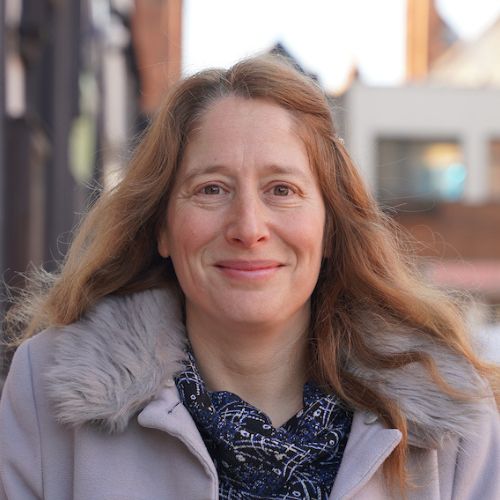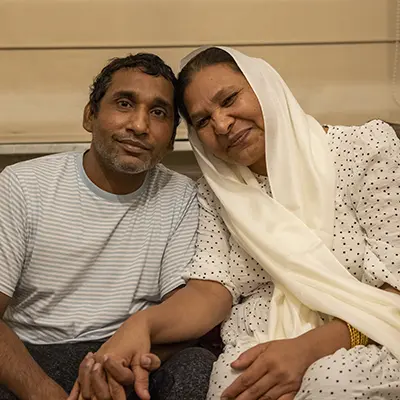- Human rights concerns about Northern Ireland’s ban on pro-life “influencing” outside of abortion facilities to be heard at UK Supreme Court, 19th-20th July 2022
- Scotland censors critics as it attempts to roll out its own censorship of pro-life volunteers
LONDON (19 July 2022) – Can the government censor people in public spaces simply because of their pro-life views? The UK Supreme Court will consider the validity of Northern Ireland’s ban on “direct” and “indirect” pro-life “influence” in a 100m vicinity of abortion facilities in a hearing held today and tomorrow.
“The criminalisation of any kind of ‘influencing’ is vague, uncertain and reduces the threshold of criminality to an impermissibly low level. This broadly drafted law would hand arbitrary power to police officers, with the inevitable consequence being the unjust arrest and prosecution of those expressing pro-life views, even though such views are protected under domestic and international human rights law,” said Jeremiah Igunnubole, Legal Counsel for ADF UK.
The legislation in question – The Abortion Services (Safe Access Zones) Northern Ireland Bill – was adopted in the Northern Irish Assembly on 24 March 2022, having been sponsored by the leader of the Green Party in Northern Ireland, Clare Bailey, who subsequently lost her seat in the recent parliamentary elections.
Northern Ireland’s Attorney General, Dame Brenda King, referred the bill to the Supreme Court citing concerns that the legislation omits a defence of ‘reasonable excuse’ and is therefore incompatible with the European Convention on Human Rights.
“We know from a Home Office review into the situation that instances of harassment outside of abortion facilities are rare, and when they happen, police already have powers to stop it. Censorship zones go much further. They introduce a disproportionate and unjustified blanket ban on all pro-life activity, including offering meaningful charitable help and support to women where they need it most. Authorities do not hold a right to silence the public expression of a viewpoint with which they simply disagree,” continued Igunnubole.
Criminalising help and prayer
Liverpool and Bournemouth councils have recently launched consultations about bringing in a similar measure, which would prohibit pro-life volunteers from speaking – including offering financial and practical help to women looking for an alternative option to abortion – on public streets in the vicinity of abortion facilities.
Aberdeen council approved measures to censor public streets last week.
In Richmond and in Ealing, where censored zones have already been implemented, even silent prayer is prohibited in the 150m zone – a move likely to be copied by other Councils.
Since the ban was first implemented in Ealing in 2018, mothers who benefited from the offers of help made by pro-life volunteers outside abortion clinics have been campaigning under the banner “Be Here For Me” to end the censorship of such services.
“What kind of society withholds help from vulnerable women? I didn’t want an abortion but I was abandoned by my partner, my friends and society. My financial situation at the time would have made raising a child very challenging. Thanks to the help I was offered by a group outside of a clinic before my appointment, my daughter is here today. My experience is typical of hundreds of others. Refusing charitable volunteers from offering much-needed services and resources for women in my situation is wrong. Let them help,” said Alina Dulgheriu of the Be Here for Me campaign. Hear her full story below.
You are currently viewing a placeholder content from YouTube. To access the actual content, click the button below. Please note that doing so will share data with third-party providers.
Grandmother arrested for public prayer overturns fine
Yesterday, news broke that Rosa Lalor, a 76-year-old grandmother from Liverpool, had successfully overturned her penalty fine after having been arrested for taking a prayer walk near an abortion facility in February 2021 – alone, and silent.
When approached by a police officer during the lockdown, Lalor had been questioned as to why she was outdoors. She answered that she was “walking and praying”. The officer responded that Lalor wasn’t praying in a place of worship, and that she did not have a “reasonable excuse” to be outdoors at that time. The officer claimed that Lalor was there to “protest”. The grandmother was arrested, detained, and issued a fine.
Merseyside Police have now conceded that such detention was wrong, and that Lalor was acting within her rights, indeed having a “reasonable excuse” to be outdoors praying. Learn more on her story here.
“I’m delighted that the prosecution has finally dropped this charge after a long and exhausting battle for justice. I took this challenge forward with support from ADF UK to show that we do all have a fundamental right to pray – not least pray as I did, in the privacy of my own mind. It was wrong for the police officer to tell me that I could not pray in a public street. It’s important for officers to respect basic religious freedom, and improve their understanding of how that right manifests, in order to maintain a truly tolerant society,” commented Lalor.
Despite the police force deeming Lalor’s actions to be a reasonable excuse under coronavirus legislation, Liverpool council is one of the authorities now seeking to introduce censorship zones to prevent the kind of activity for which Lalor has now received full vindication.
Censorship of “buffer zones” criticism in Scotland
The Scottish government has shown support for rolling out censorial “buffer zones” across Scotland. First Minister Nicola Sturgeon chaired a summit on the issue last month, inviting groups campaigning for censored zones to participate. This support for the policy comes despite the First Minister’s acknowledgement that “buffer zones” raise significant concerns in accordance with human rights law.
You are currently viewing a placeholder content from X. To access the actual content, click the button below. Please note that doing so will share data with third-party providers.
When the policy idea was criticised by ADF UK’s Lois McLatchie on BBC Scotland, SNP Spokesperson MP Alison Thewliss called for the 26-year-old Scot to be deplatformed from the broadcaster, despite the BBC’s famous requirement for balanced coverage under the conditions of the Royal Charter.
“As a Scottish woman, I will not stop speaking out to defend the rights of all people to speak freely. That is why it is so disappointing to see a Scottish MP seek to silence and deplatform me simply because she disagrees with what I have to say. Ironically, she seeks to cancel me because of my views on the censorship of speech on public streets. It is my firm belief that governments must not be allowed to censor public spaces based on their own ideological viewpoints. Apparently, she disagrees. I welcome debate. But ad hominem attacks make our public discourse poorer. Democracy depends on the free and fair exchange of views,” commented McLatchie.







